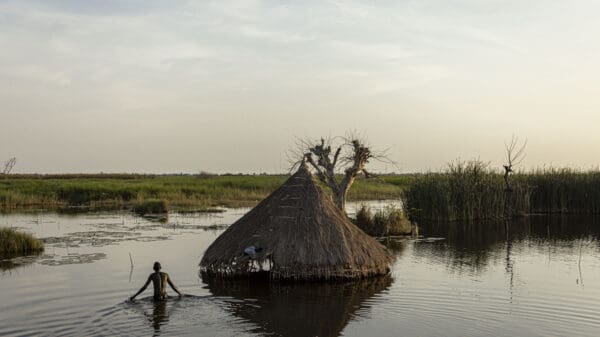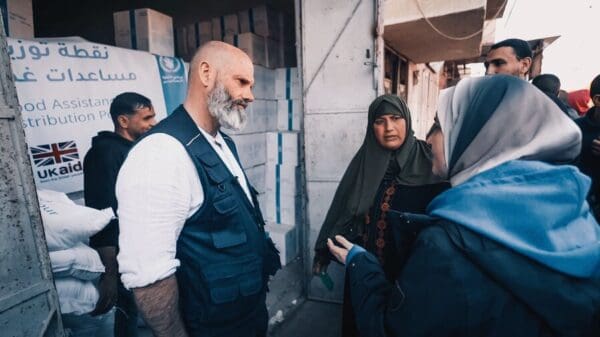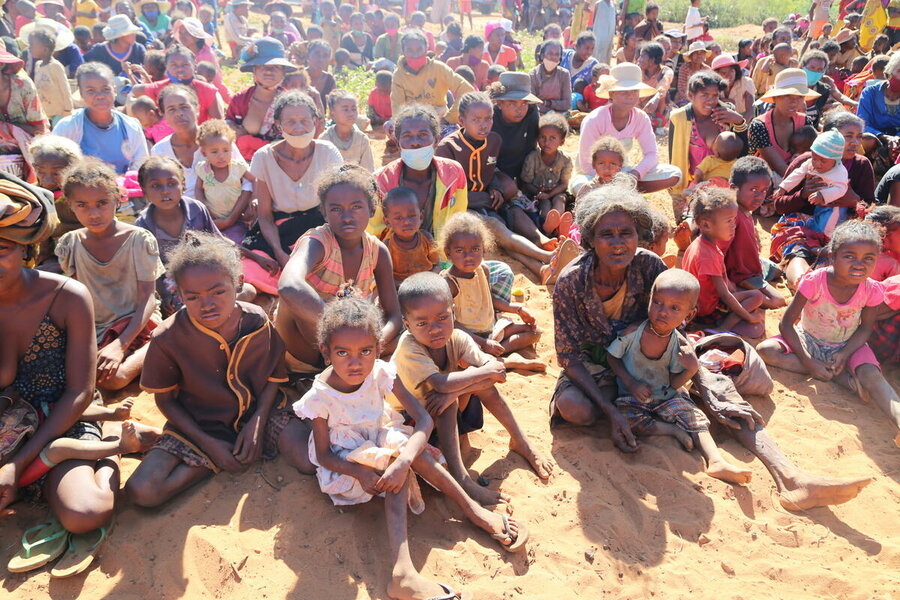
Don’t Look the Other Way: The Tragic Effects of the Climate Crisis Are Unfolding in Southern Madagascar, Where Hundreds of Thousands of Lives Are in the Grip of Drought of Famine
Hundreds of thousands of lives are at risk in southern Madagascar where, for the first time in the country, catastrophic levels of hunger have been recorded.

Underweight and severely hungry children wait for treatment at a nutrition center in the Ambovombe district.
For the first time, pockets of catastrophic hunger have been recorded in southern Madagascar. At least 1.14 million people in the Grand Sud need emergency food and nutrition assistance and have been suffering from hunger since the start of the lean season last September.
Eyewitness Accounts From the Epicenter of the Crisis
In Amboasary, one of the southernmost districts, 14,000 people out of a total population of around 200,000 are already facing famine-like conditions. The ground beneath their feet is dry and cracked. No water flows beneath bridges and there is a stillness as people and cattle wander where once there was rushing water.
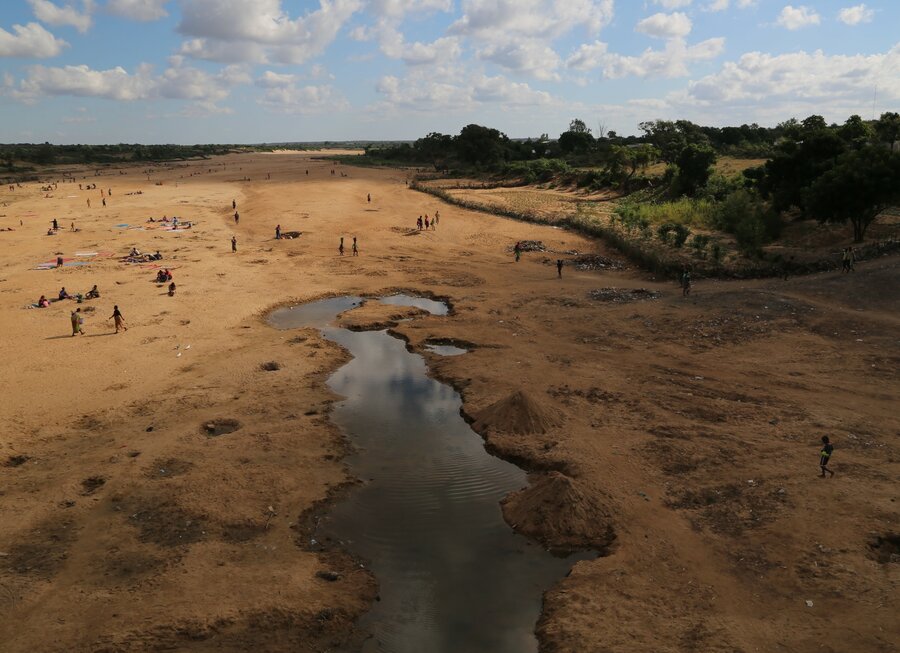
Severe drought in southern Madagascar has dried river beds and farmland.
Makeshift shops sell a handful of tomatoes, rice cakes and live chickens. But for many, there is no money to buy food and firewood — let alone water and utensils to cook with. To have some money, families have sold most of their worldly possessions.
Tamaria
I meet Tamaria in Fandiova Center, Amboasary. She is a mother of 7 and has taken in children who have lost both their parents. She sits outside her bamboo hut. A plate of dried cactus is in front of her and 4 children. They pick at the seeds.
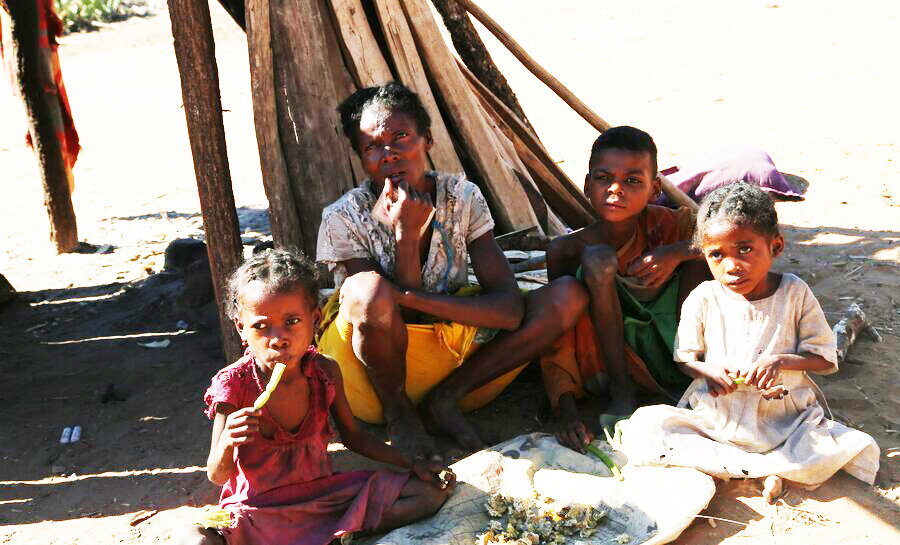
Tamaria and her children are forced to eat cactus to temporarily soothe hunger pangs.
“There is nothing to do here,” she says. “I have no land so I cannot cultivate anything. We sold all our domestic goods, including spoons. If we find green vegetables and want to cook them, for example, we need to borrow pots from other people. I have nothing left and it is painful.”
There are women and children walking barefoot on the road between villages, traveling for hours to gather and carry what water and firewood they can. Without food and water, people are becoming weaker every day.
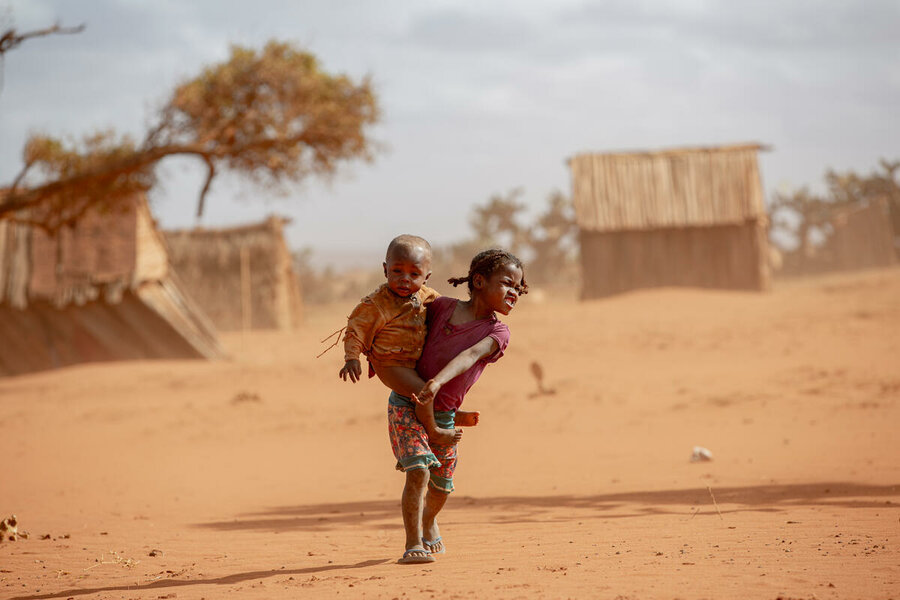
Severe hunger levels among children are expected to quadruple in southern Madagascar, with at least half a million children under the age of 5 estimated to suffer from malnutrition.
Tema
Tema, lives in Toby Mahavelo and receives United Nations World Food Programme (WFP) emergency food rations.
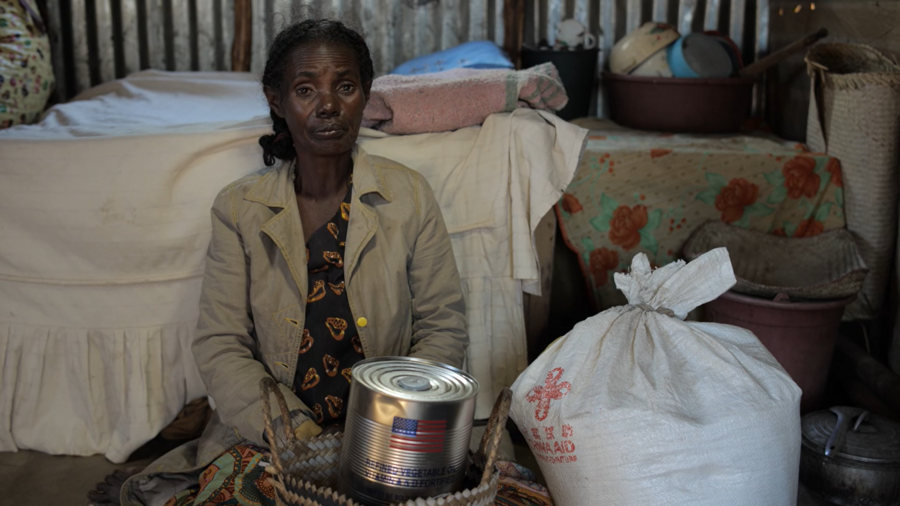
“We do our best to make this food last as long as possible,” Tema says. “We limit our consumption to 14 handfuls of rice for one week.”
“Without the U.N. World Food Programme’s assistance, since we’re left with nothing to eat, I think we would have died,” she says. “I don’t know who to turn to. I pray day and night to see light at the end of the tunnel.”
“We save this food to ensure we have something in our tummy. We don’t need to be full, just to eat something and to avoid being left with nothing to eat.”
“Before getting the U.N. World Food Programme’s support, I used to walk several miles to go to Ambovombe where I begged. Sometimes, I got 3,000 Malagasy ariary (less than $1) that I had to make last for a few days. It enabled me to buy edible leaves for my family.”

Communities in southern Madagascar who are contributing nothing to the climate crisis are suffering the brunt of it. 63 percent of people in the south are farmers who have lost their livelihoods and water sources due to drought.
The island of Madagascar has become more isolated in the last year due to COVID-19 travel restrictions, meaning longer travel times to bring food into the country and into the hands of people in need. The U.N. World Food Programme is scaling up its response to reach 1 million people with food rations like corn, beans and oil as well as nutritious food for little children facing the worst effects of severe hunger.
This story originally appeared on WFP’s Stories on July 8, 2021 and was written by Shelley Thakral.
To learn more about our programming in Madagascar, click here.
